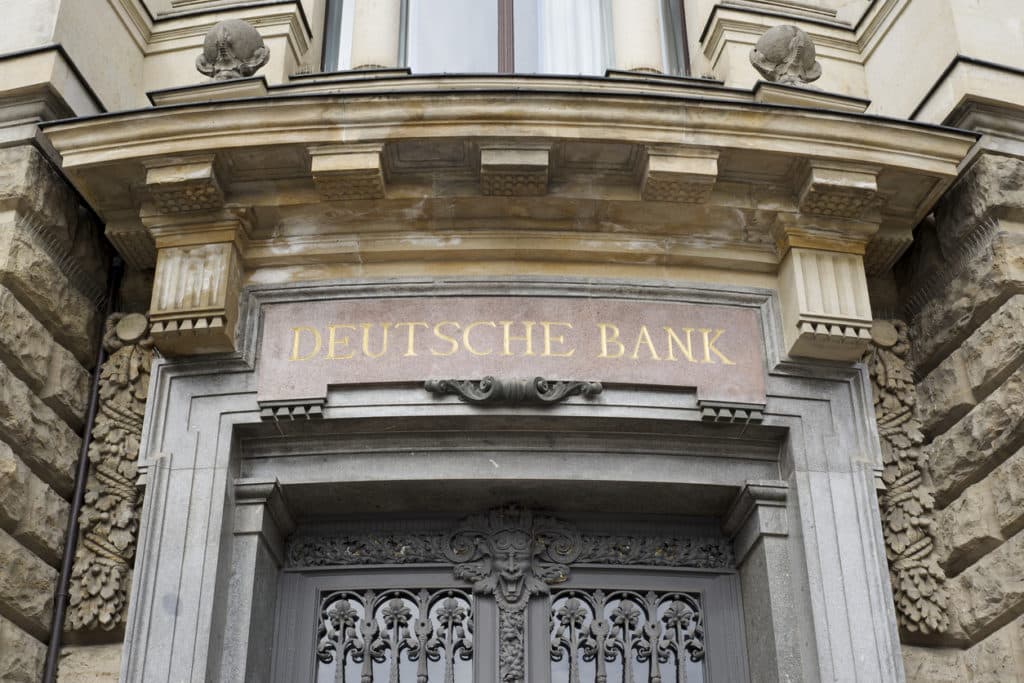On January 8, the U.S. Department of Justice (DOJ) and Securities and Exchange Commission (SEC) announced charges against Deutsche Bank for violations of the Foreign Corrupt Practices Act (FCPA). Deutsche Bank allegedly made corrupt payments and bribes to third-party intermediaries and falsified records to conceal the illegal behavior. In order to resolve the charges, Deutsche Bank has agreed to pay over $130 million.
According to the DOJ and SEC, between 2009 and 2016, Deutsche Bank “knowingly and willfully conspired” to falsify records in order to conceal bribes made to foreign officials, their relatives, and their associates. Deutsche Bank allegedly engaged these individuals as third-party intermediaries, business development consultants (BDCs), and finders and made illegitimate payments to them in order to obtain lucrative global business.
The SEC and DOJ allege that “by agreeing to misrepresent the purpose of payments to BDCs and falsely characterizing payments to others as payments to BDCs, Deutsche Bank employees conspired to falsify Deutsche Bank’s books, records, and accounts, in violation of the FCPA.” Furthermore, Deutsche Bank allegedly “lacked sufficient internal accounting controls related to the use and payment of such intermediaries.”
To settle the DOJ charges, Deutsche Bank is to pay criminal penalties of $85,186,206, criminal disgorgement of $681,480, and victim compensation payments of $1,223,738. To settle the SEC charges, Deutsche Bank is to pay disgorgement of $35 million with prejudgment interest of $8 million.
“Deutsche Bank engaged in a criminal scheme to conceal payments to so-called consultants worldwide who served as conduits for bribes to foreign officials and others so that they could unfairly obtain and retain lucrative business projects,” stated Acting U.S. Attorney Seth D. DuCharme of the Eastern District of New York. “This office will continue to hold responsible financial institutions that operate in the United States and engage in practices to facilitate criminal activity in order to increase their bottom line.”
“While third parties can assist in legitimate business development activities, it is critical that companies have sufficient internal accounting controls in place to prevent payments to third parties in furtherance of improper purposes,” said Charles Cain, Chief of the SEC Enforcement Division’s FCPA Unit.
Through the SEC Whistleblower Program, individuals who disclose information about FCPA violations can obtain monetary rewards. Qualified whistleblowers, individuals who voluntarily provide original information that leads to a successful SEC enforcement action, are entitled to an award of 10-30% of funds recouped by the government. Through the related action provisions of the Dodd-Frank Act, whistleblowers are also entitled to monetary awards for enforcement actions carried out by other agencies when the related actions are based on the same original information.
Whistleblowers do not need to be U.S. citizens in order to be eligible for SEC whistleblower awards. Disclosures made by foreign whistleblowers have led to massive FCPA settlements. For example, anonymous Greek whistleblowers exposed bribes made by the pharmaceutical company Novartis, which led to over $300 million in sanctions. Correspondingly, foreign nationals have received millions of dollars in rewards for reporting FCPA violations. The SEC protects the confidentiality of whistleblowers and thus does not disclose information that could reveal a whistleblower’s identity.
Read:
SEC Charges Deutsche Bank With FCPA Violations Related to Third-Party Intermediaries
